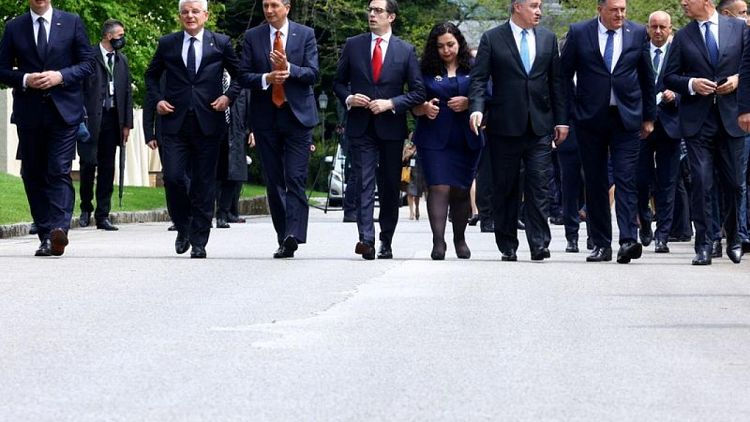By Sabine Siebold
BERLIN - Bosnia's international peace envoy has urged European Union leaders to send a message of encouragement to the six Balkan countries seeking membership of the bloc when they meet for a summit next week.
He issued his appeal as EU member states struggle to agree whether they can guarantee the six countries a future in the bloc at the Oct. 6 summit in Slovenia.
"The summit needs to convey a clear message that Europe has an interest in a European Balkans," international High Representative in Bosnia Christian Schmidt told Reuters.
His office oversees the implementation of the 1995 Dayton peace agreement that ended Bosnia's 1992-95 war in which 100,000 were killed. The war was one of the ethnic conflicts fought in the 1990s as Yugoslavia disintegrated.
The potential for tensions in the Balkans is rising again, Schmidt warned.
A border dispute between Serbia and Kosovo has flared and there is growing frustration in the region over a lack of progress in EU enlargement talks.
The summit was meant to breathe new life into enlargement but has been marred by disagreement between EU countries over whether the bloc should restate its promise to offer Serbia, Kosovo, Bosnia, Montenegro, Albania and North Macedonia membership.
Supporters of enlargement caution that Chinese and Russian influence in the Balkans is growing as the EU hesitates.
Schmidt, a former government minister in Germany, called for concrete steps to bring the six countries closer to the bloc and improve the lives of their citizens.
"The citizens and politicians of the six countries ... are waiting for a clear signal paving the way for closer cooperation with the EU," he said in comments to Reuters on Wednesday.
Steps could include increasing convergence with cheaper EU roaming tariffs for mobile telephone users, a better infrastructure or a closer economic connections between the Balkans and the EU, Schmidt said.
He cautioned that many young people in Bosnia, discouraged by the lack of progress towards EU membership, were ready to emigrate.
"There are many well educated people who don't work in the Balkans because they either don't find jobs there or because they have gone abroad, to work in Austria or Germany," Schmidt said.
